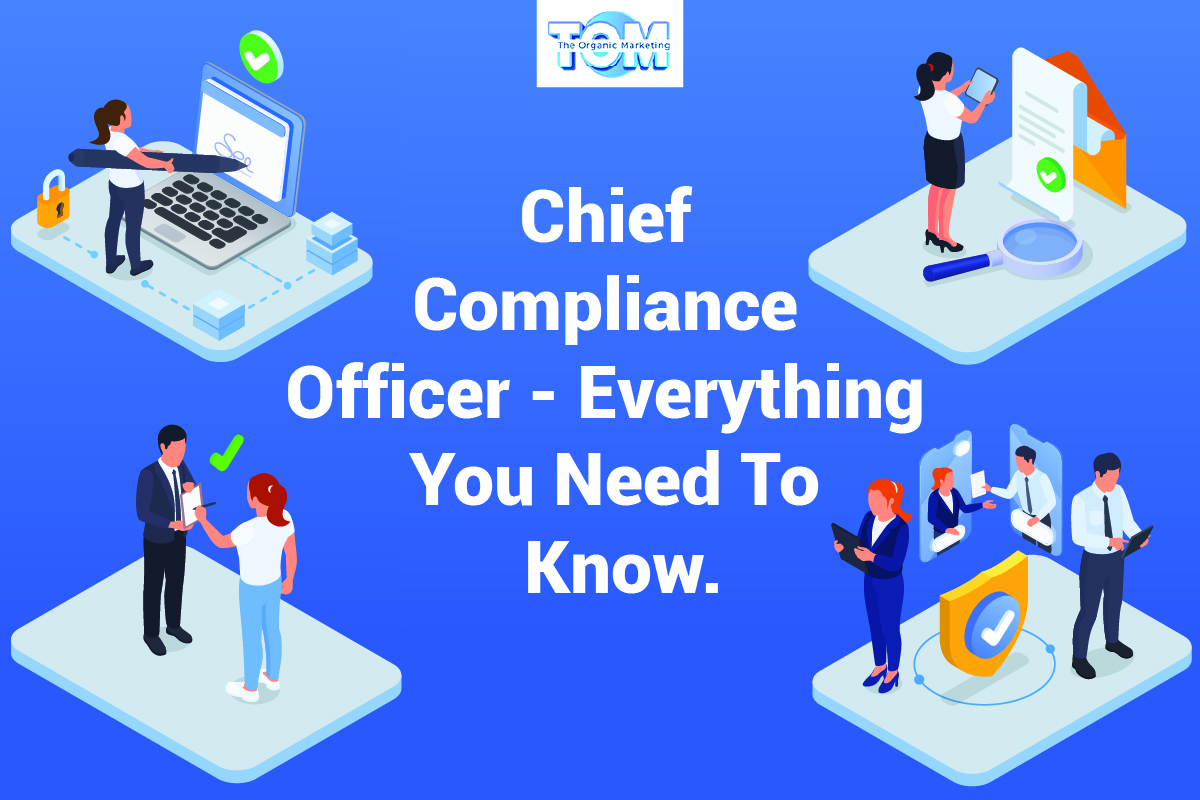Chief Compliance Officer – Everything You Need To Know
In today’s challenging regulatory setting, the position of Chief Compliance Officer (CCO) has grown significantly in prominence. In this thorough guide, we’ll go over the most significant aspects of the CCO position, such as their responsibilities, the organization of their teams, the necessary abilities and credentials, and average earnings in India.
What is a Chief Compliance Officer?
A chief compliance officer is a senior executive who is in charge of making sure that a business complies with all applicable laws, rules, and internal policies. The CCO is responsible for managing the creation, implementation, and upkeep of compliance programs that are designed to reduce risks and advance moral behavior within the company.
By performing routine assessments, audits, and monitoring to ensure continuing compliance, they work in conjunction with senior management, legal teams, and business divisions to identify possible compliance issues and implement suitable policies and processes.
Responsibilities of a Chief Compliance Officer
- Setting up Compliance Programs: CCOs create and carry out extensive compliance programs that are specialized to the organization’s industry and needs. To encourage adherence to rules and regulations, these programs include policies, procedures, and training activities.
- Risk evaluation and management: CCOs perform risk analyses to detect possible compliance concerns and keep up with changing regulatory frameworks. They create plans to lessen these risks, such as setting up internal controls, keeping an eye on systems, and carrying out routine audits.
- Developing policies and procedures: The development of simple and unambiguous compliance rules and processes is a joint effort of CCOs, legal, and business teams. These documents lay forth standards, directives, and reporting procedures to guarantee uniform compliance throughout the business.
- Learning and Training: CCOs set up training sessions to inform staff members of the need for compliance, moral behavior, and the consequences of non-compliance. Through frequent communication and awareness-raising activities, they also promote a culture of compliance.
Members of a Chief Compliance Officer team
The Chief Compliance Officer (CCO) team’s members are essential to an organization’s compliance initiatives. A few key team members and their respective positions are listed below:
- Compliance Analysts: Regular risk evaluations and assessments are carried out, regulatory developments are tracked, compliance policies and processes are developed and put into practice, audits are carried out, and results are reported to the CCO and other relevant parties.
- Compliance Specialists: They create and conduct compliance training programs, manage compliance controls and monitoring systems, and offer subject matter knowledge in certain fields including data privacy, AML, and healthcare legislation.
- Internal Auditors: They assess the company’s internal controls and compliance processes, identify shortcomings and suggest improvements.
- Legal Experts: They design and analyze compliance policies, offer legal and regulatory advice, and assist the CCO in deciphering and putting legal and regulatory obligations into practice.
- Training and Education Specialists: They design materials and modules, monitor compliance completion, update information depending on regulatory changes, and foster a culture of compliance through communication and awareness campaigns. They also plan and administer compliance training programs for staff.
- Data Privacy Officers: They manage data breach incidents, develop and maintain policies, procedures, and guidelines, ensure compliance with laws and regulations, conduct impact assessments, and work with IT and other departments to put privacy controls and safeguards in place. They also oversee the organization’s data protection and privacy compliance efforts.
Skills and Qualifications
CCOs must possess both academic qualifications and professional certifications. While exact credentials may differ, the following are typical prerequisites for CCO positions:
- Academic Background: It is frequently desirable to have a bachelor’s degree in a relevant subject like law, business administration, finance, or a similar area. A Master of Business Administration (MBA) or a Juris Doctor (JD), for example, might be useful.
- Certificates of Compliance: CCOs frequently have credentials like Certified Financial Services Compliance Professional (CFSCP), Certified Regulatory Compliance Manager (CRCM), or Certified Compliance and Ethics Professional (CCEP). These certificates prove expert knowledge and dedication to further education.
Average Salary of a Chief Compliance Officer in India
According to the industry, the size of the company, the location, and expertise, a Chief Compliance Officer’s compensation in India may change. Depending on the level of detail of the compliance environment and the nature of the work, salaries typically range from INR 1,500,000 to INR 3,500,000 annually.
CCOs play an important role in fostering ethical behavior, reducing risks, and guaranteeing compliance with laws and regulations as firms manage complicated compliance obligations. CCOs contribute to the overall integrity and success of businesses across a range of sectors through their knowledge, leadership, and collaborative style.
To know more about the role of Chief Compliance Officer (CCO), contact The Organic Marketing today.






